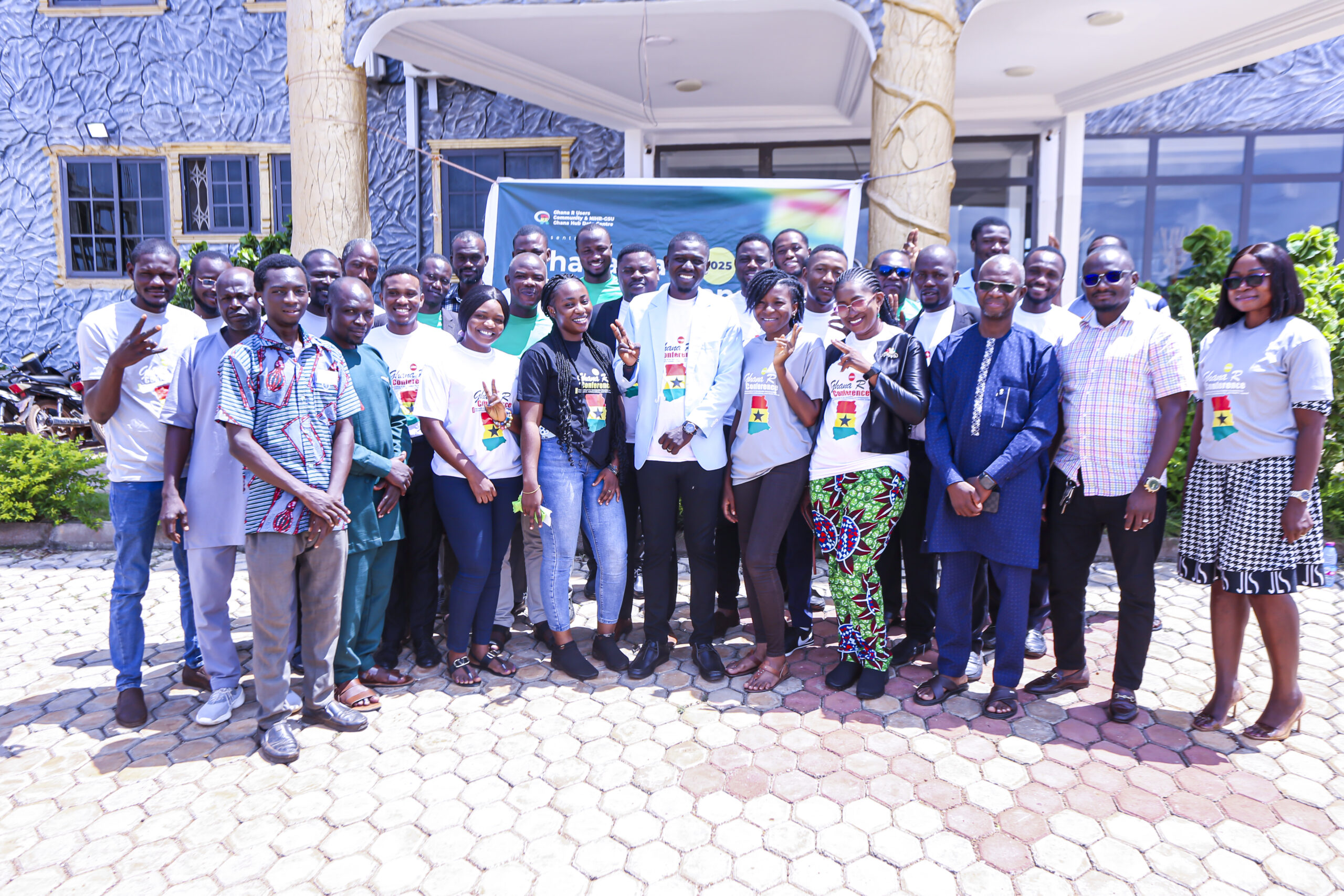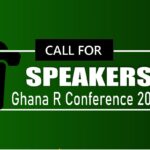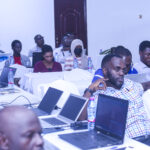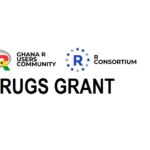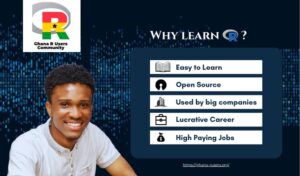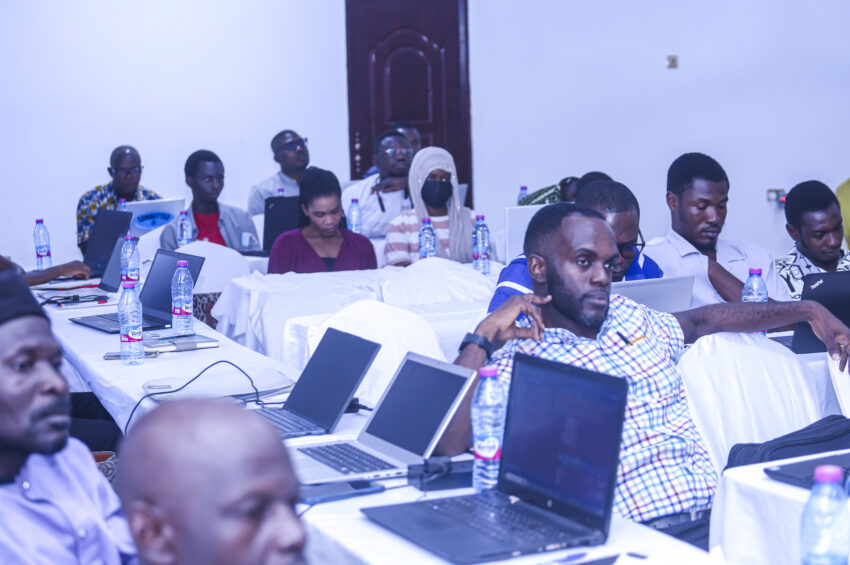
When R and data enthusiasts gather in one space—some in person, others virtually—you know something big is happening. That was the scene from June 19–20, 2025, at the UDS Golden Tower Hotel in Tamale, where the Ghana R Conference lit up conversations around coding, collaboration, and sustainable development.
Under the theme “Harnessing R for Sustainable Development: Innovations, Collaborations, and Health Impact” this year’s conference wasn’t just about lines of code—it was about impact. Real-world impact. From tackling public health challenges to predicting rainfall with machine learning, the energy was palpable, the conversations deep, and the insights inspiring.
A Warm, Purposeful Start
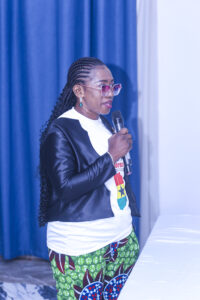 The event opened with powerful remarks from Nana Akua Bema Gyasi-Duku, who didn’t just set the tone—she anchored it in inclusivity. She spotlighted the need for more women in data science and emphasized building strong local communities like R-Ladies Ghana. From there, we were off to a fast start.
The event opened with powerful remarks from Nana Akua Bema Gyasi-Duku, who didn’t just set the tone—she anchored it in inclusivity. She spotlighted the need for more women in data science and emphasized building strong local communities like R-Ladies Ghana. From there, we were off to a fast start.
Stories, Tools, and Teaching
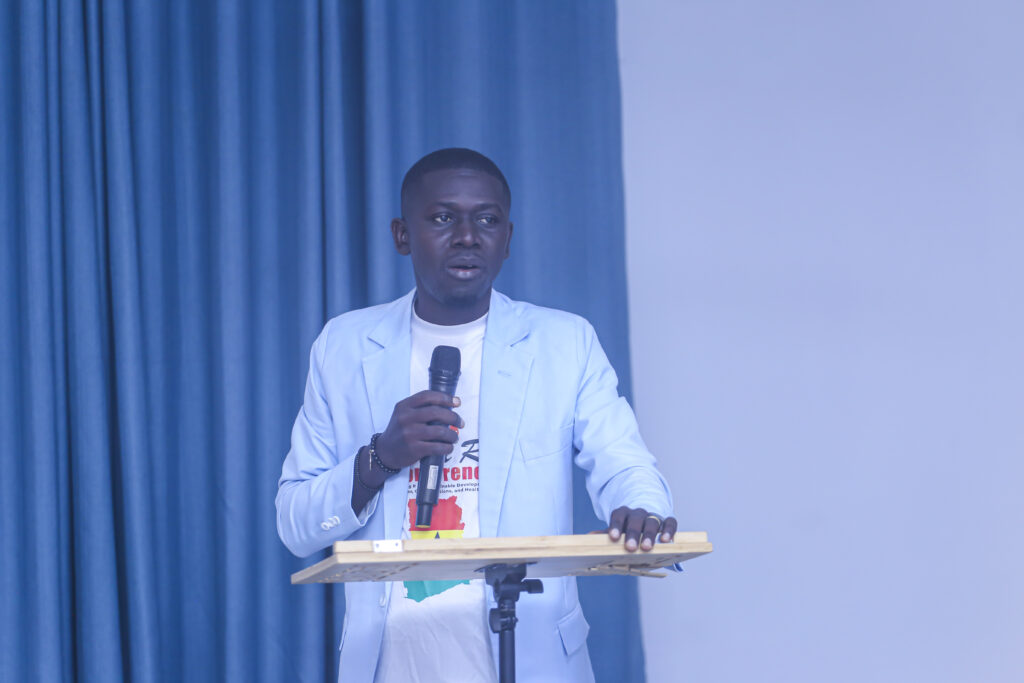 Francis Mensah shared the journey of the Ghana R Users Community, tracing its evolution and its ever-growing ecosystem, global partnerships and contributions to empowering local researchers.
Francis Mensah shared the journey of the Ghana R Users Community, tracing its evolution and its ever-growing ecosystem, global partnerships and contributions to empowering local researchers.
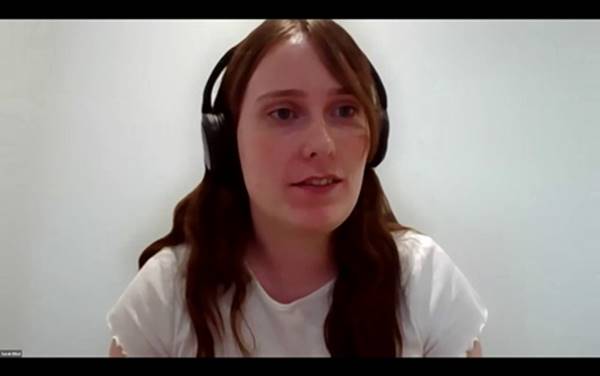
Then, Sarah Elliot, joining virtually, shared insights from the HealthyR initiative; a program supporting healthcare professionals and students in learning R through community, courses, and hands-on support. In her talk, “From Demo to Doing: Teaching and Learning with HealthyR”, Sarah outlined five effective teaching strategies: using real health data, live coding, embracing errors, encouraging questions, and focusing on practical tools. She also reflected on lessons from her own learning journey, emphasizing continuous learning, code reuse, the power of tidymodels, and the utility of Quarto for sharing work. Key R packages she highlighted included janitor, lubridate, finalfit, reactable, and broom each of which has enhanced her workflow and teaching practice.
We were just getting started.
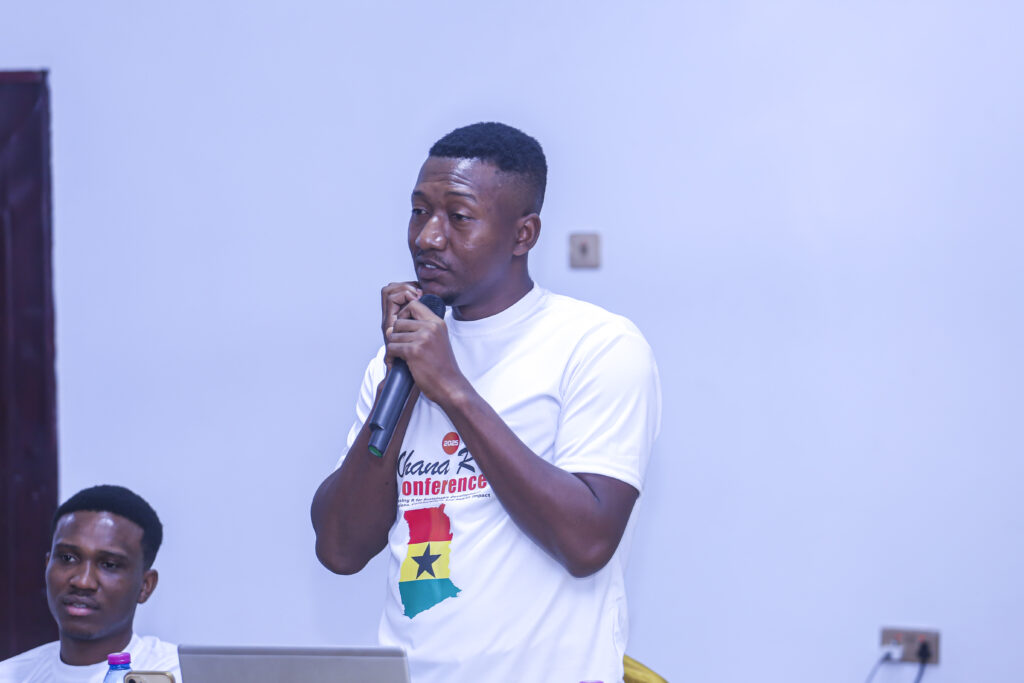 George Kyei Agen took beginners under his wing with the fundamentals of R, before diving into environmental monitoring and building predictive models for rainfall using
George Kyei Agen took beginners under his wing with the fundamentals of R, before diving into environmental monitoring and building predictive models for rainfall using ggplot2, terra, and more. It was one of those sessions that leaves beginners feeling empowered and veterans refreshed.
Later, Olakunle Joshua zoomed in with a gripping story: using R to analyze satellite data from a major fire in Chile. His passion for geospatial analysis and sustainability had everyone nodding along—and taking notes.
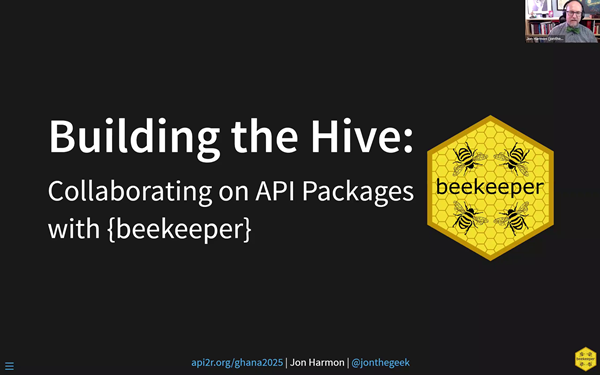 Then came a different kind of buzz: Jon Harmon’s presentation on “Building the Hive: Collaborating on API Packages with {beekeeper}.” He introduced the API2R project and demonstrated how the {rapid}, {beekeeper}, and {nectar} packages work together to automate API package development in R. He encouraged collaboration and open-source contributions from the R community.
Then came a different kind of buzz: Jon Harmon’s presentation on “Building the Hive: Collaborating on API Packages with {beekeeper}.” He introduced the API2R project and demonstrated how the {rapid}, {beekeeper}, and {nectar} packages work together to automate API package development in R. He encouraged collaboration and open-source contributions from the R community.
Day 1 closed with Dr. Edmund Ayesu, who made economic data come alive with a deep dive into Markov Switching models to understand inflation trends in Ghana. It was data science with national relevance.
Data Meets Diversity
Day 2 picked up with more reflections and a renewed sense of purpose. Dr. Irene Kafui Vorsah Amponsah and Anthony Gyereh walked us through the role of R in medical statistics—again blending theory with practice in a way that made everything click.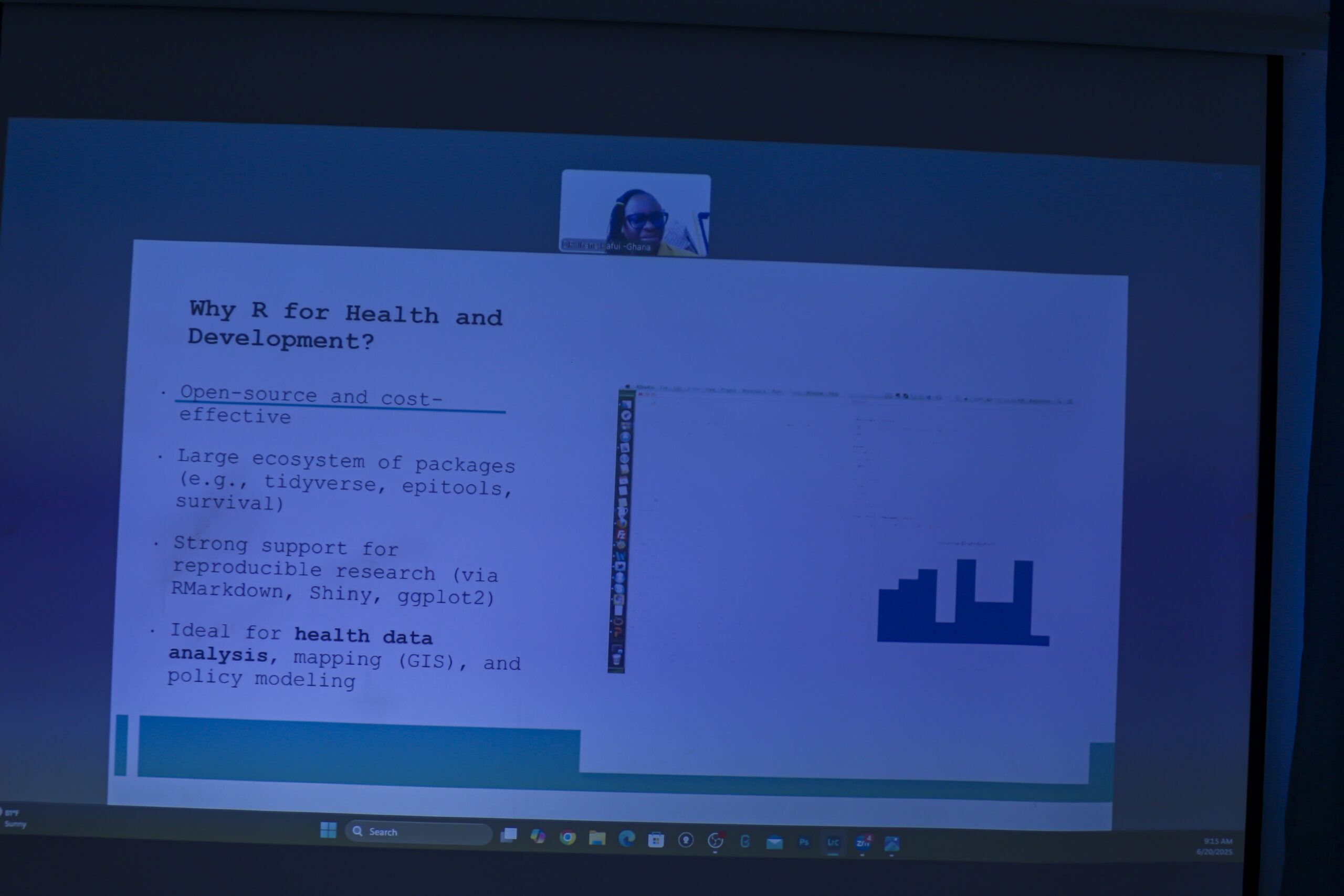
Kevin O’Brien joined virtually and showed how to work with documents in R using packages like officer and flextable, and even dipped into the AI side of R workflows.
We circled back to community with Nana Akua’s session on growing the R-Ladies network in Ghana. Her story—filled with challenges, growth, and triumphs—was a highlight. She reminded us that inclusive spaces don’t just happen. They’re built.
Then came Dr. Timothy A. Ogunleye, speaking on R’s potential across the continent—from governance to agriculture to health. His call for more investment in R education echoed long after the session ended.
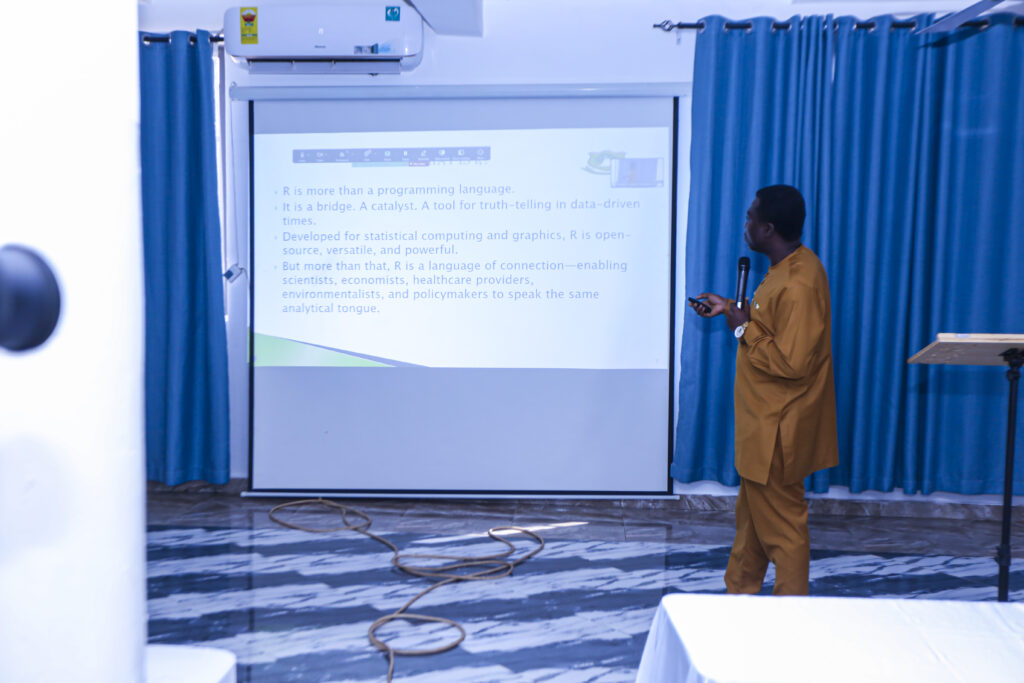 And finally, Dr. Napoleon B. Sam brought everything full circle: R isn’t just a language—it’s a bridge. His call to action was simple but powerful: use R to create interdisciplinary solutions that drive justice, equity, and sustainability.
And finally, Dr. Napoleon B. Sam brought everything full circle: R isn’t just a language—it’s a bridge. His call to action was simple but powerful: use R to create interdisciplinary solutions that drive justice, equity, and sustainability.
Beyond the Talks: What We Took Away
The feedback said it all. With an average satisfaction rating of 4.4 out of 5, participants praised the quality of presentations, the relevance of topics, and the sense of community. Whether networking over lunch or collaborating in hands-on sessions, connections were made and ideas sparked.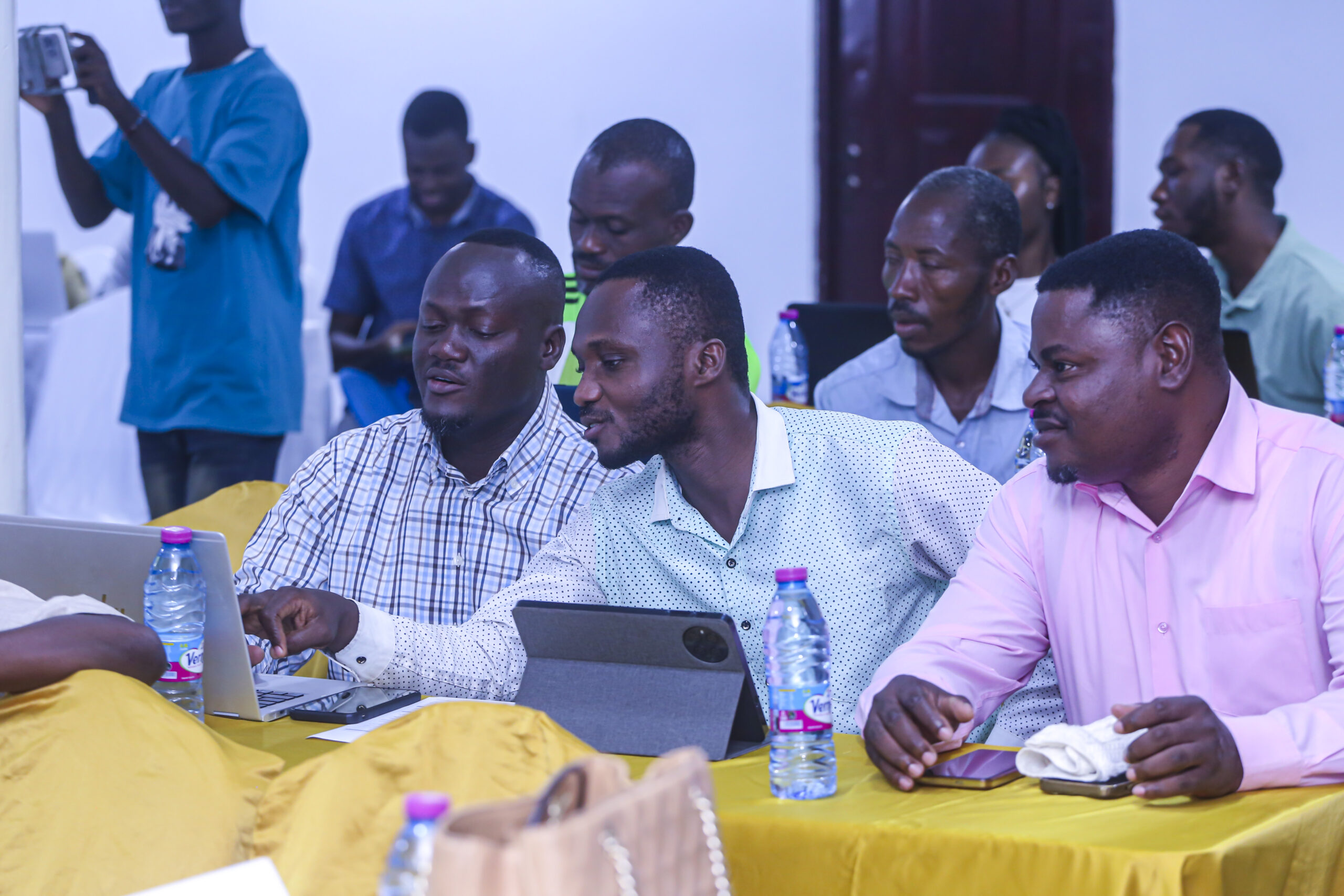
Of course, no event is perfect. A few speakers couldn’t make it, and some attendees wanted more interactive workshops. But that’s the beauty of feedback—it shapes the next chapter.
Looking Ahead
As the final slides clicked, one thing was clear: the Ghana R Conference 2025 wasn’t just a gathering. It was a movement; a celebration of how open-source tools, local talent, and global collaboration can drive real change.
So here’s to more hands-on sessions. More voices. More code. More community.
Acknowledgements
We express sincere gratitude to the NIHR-GSU Ghana Hub, R Consortium, the speakers, organizing committee, volunteers, and all attendees. Your energy, support, and contributions made this conference a meaningful and memorable experience.
To our speakers, thank you for sharing your insights and inspiring conversations on how R can impact research, governance, public health, and more.
We also appreciate our sponsors and partners especially the R Consortium and NIHR Global Surgery — for making this event possible.
We’re proud of the connections made and the momentum we’ve built. Let’s keep learning, collaborating, and growing the R community in Ghana and beyond.
Catch the Replay
Missed it or want a replay? Watch the full sessions below:

